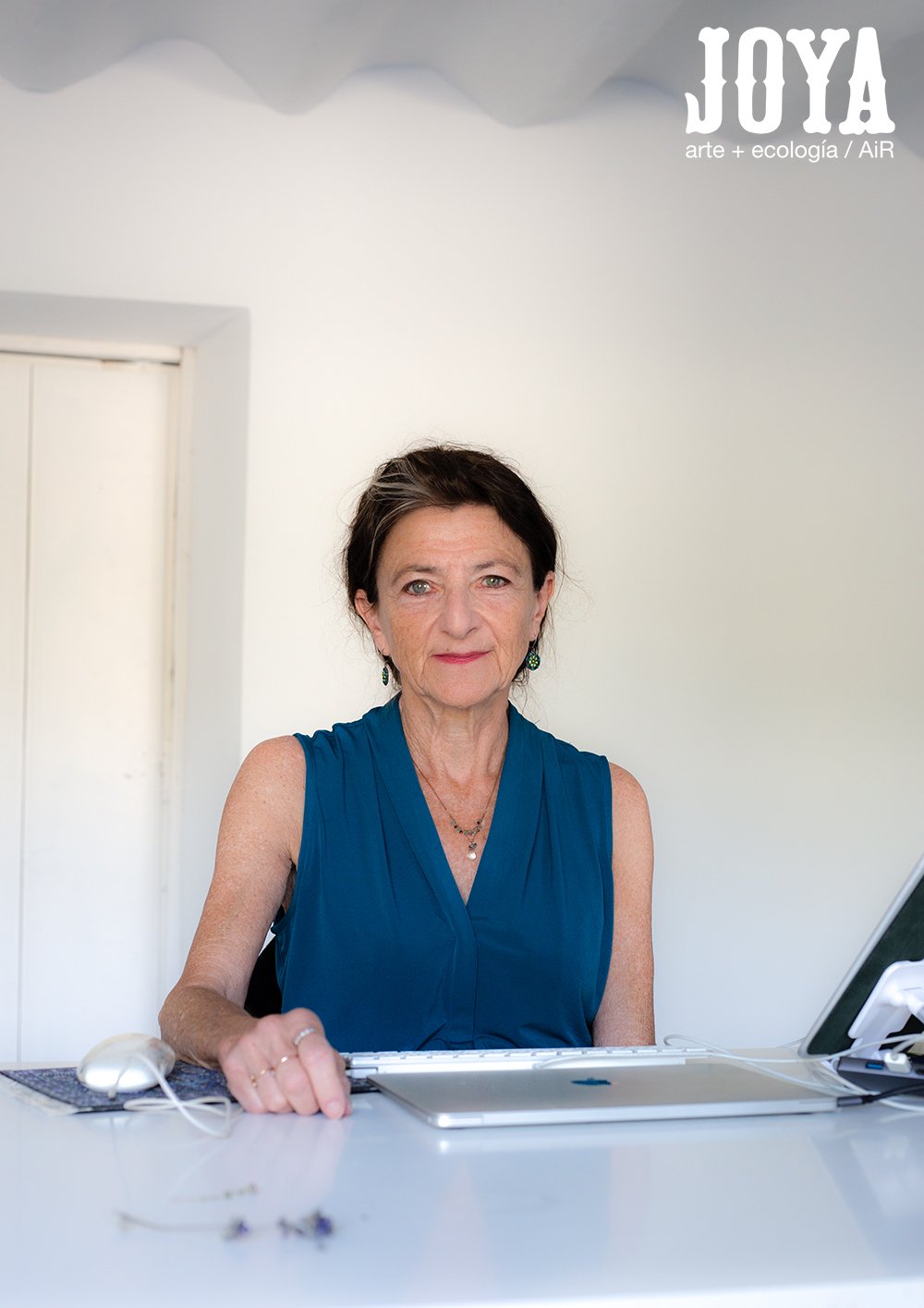photo Simon Beckmann
Joya: AIR / Helen Benedict / USA
‘I arrived at Joya: AIR with the beginning of a new novel but little idea of where it was going. Tentatively titled, Glorious Sin, it’s about memory, aging, love and betrayal. In the past, it takes place in 1940s New York and 1950s London, opening during the Great Smog of 1952. In the present, it takes place during the pandemic when the protagonist is swinging in and out of dementia at the age of 97. By the time I left Joya: AiR, I had ten chapters written and a plan.
All in all, Joya gave me some of the best writing time, inspiration, peace and nourishment (visual and literal), I could ever have asked for. Met wonderful, kind, inspiring people, saw and heard wildly beautiful birds every day. The landscape of white and sage, pink and forest green, red poppies and bold blue sky have all seeped into my work. Donna and Simon, thank you’.
Helen Benedict, professor of journalism at Columbia University, is the author of eight novels, including the forthcoming The Good Deed, about refugees in Greece, and two novels about the aftermath of war on women, Wolf Season and Sand Queen, the latter named a “Best Contemporary War Novel” by Publishers Weekly and reviewed by The Boston Globe as “The Things They Carried for women.’” A recipient of the 2021 PEN Jean Stein Grant for Literary Oral History, the Ida B. Wells Award for Bravery in Journalism and the James Aronson Award for Social Justice Journalism for her exposure of sexual predation in the military, Benedict is also the author of six works of nonfiction, most recently the award-winning, Map of Hope and Sorrow: The Stories of Refugees Trapped in Greece, co-authored with Syrian writer and refugee, Eyad Awwadawnan. She is also the author of The Lonely Soldier: The Private War of Women at War Serving in Iraq, and a widely-performed play, The Lonely Soldier Monologues. Her writings inspired a class action suit against the Pentagon on behalf of those sexually assaulted in the military and the 2012 Oscar-nominated documentary, The Invisible War. She also authored Virgin or Vamp: How the Press Covers Sex Crimes, the first book to examine the effects of racism and sexism on how rape is seen by the press, the public and the law.



